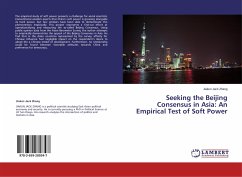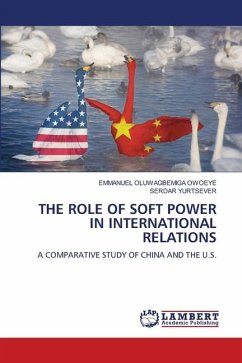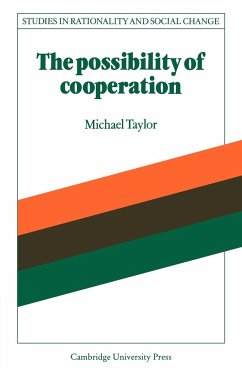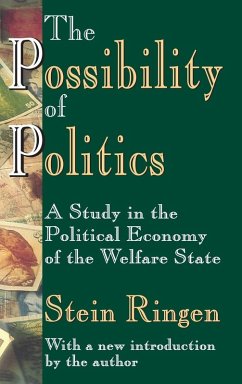
Relative Power and the Possibility of Conflict
Sino-American Relations after the Cold War
Versandkostenfrei!
Versandfertig in 6-10 Tagen
51,99 €
inkl. MwSt.

PAYBACK Punkte
26 °P sammeln!
With the end of the Cold War,the International System witnessed major changes ,which on one hand opened the door for the rise of the United States as a hegemonic power and on the other hand created a possibility for conflict,with the rise of new rapidly growing contender states such as China. This book demonstrated the vision of "Power Transition Theory" regarding the relation between the hegemonic and contender states,through linking the indicators of "relative power" and "conflict".The theory emphasized that the national capabilities of states don't have an impact on their foreign policy age...
With the end of the Cold War,the International System witnessed major changes ,which on one hand opened the door for the rise of the United States as a hegemonic power and on the other hand created a possibility for conflict,with the rise of new rapidly growing contender states such as China. This book demonstrated the vision of "Power Transition Theory" regarding the relation between the hegemonic and contender states,through linking the indicators of "relative power" and "conflict".The theory emphasized that the national capabilities of states don't have an impact on their foreign policy agenda,unless compared to that of other states. Based on this perspective,the book tackled the relation between China and the United States after the Cold war to understand whether this relationship reflects conflict or cooperation. Especially,with the rise of China as a possible contender to the United States,which could impose a new balance of power and may lead to conflict in the future. This relationship is analyzed through comparing the capabilities of both states on the economic, military and soft power levels.The book also tackled the main lingering issues between both states,e.g.Taiwan












